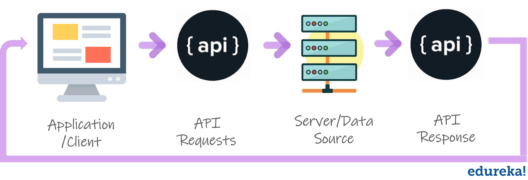Introduction about API Testing: Why It Matters and How to Do It
Posted By :Sakshat Singhal |5th June 2023
Introduction: In the realm of software development, Application Programming Interfaces (APIs) have become vital components for seamless integration and communication between different systems. To ensure the reliability, functionality, and performance of APIs, thorough testing is essential. In this blog, we will explore the concept of API testing, why it is crucial, and how it is used to validate API behavior and ensure the overall quality of software applications.
Understanding API Testing:
API testing is a type of software testing that focuses specifically on APIs, rather than the user interface. It involves examining the individual API methods, inputs, outputs, and interactions to verify their correctness, robustness, and compliance with predefined specifications or requirements.

Why is API Testing Important?
-
Functional Validation: APIs serve as the building blocks for application development, and their proper functioning is critical for the overall functionality of software systems. API testing helps validate the expected behavior of APIs by ensuring that they accurately process requests, return correct responses, handle error conditions gracefully, and maintain data integrity. By thoroughly testing APIs, developers can identify and fix issues early in the development cycle, reducing the risk of critical failures in production.
-
Integration Testing: APIs act as intermediaries between different software components, enabling seamless integration between systems. API testing ensures that APIs can effectively exchange data, synchronize processes, and maintain consistency when integrated with other applications or services. By verifying interoperability between systems, API testing helps identify and address compatibility issues, data inconsistencies, or communication problems that may arise during integration.
-
Performance and Load Testing: APIs often play a crucial role in supporting high volumes of requests and transactions. API testing allows developers to evaluate the performance and scalability of APIs by subjecting them to various load levels, stress conditions, or concurrency scenarios. By measuring response times, throughput, and resource usage, performance testing helps identify bottlenecks, optimize API performance, and ensure that APIs can handle expected traffic loads effectively.

-
Security and Error Handling: APIs are potential entry points for security vulnerabilities, making security testing an integral part of API testing. By validating authentication mechanisms, authorization checks, and data protection measures, API testing helps identify security flaws and ensures that APIs are robust against common threats, such as injection attacks or unauthorized access attempts. Additionally, API testing verifies how APIs handle and report errors, ensuring that appropriate error codes and messages are returned to clients, aiding in troubleshooting and debugging.

How is API Testing Performed?
-
Test Environment Setup: Setting up a suitable test environment is essential for API testing. This may involve configuring test servers, databases, and network conditions to closely resemble the production environment. Additionally, test data may need to be prepared to simulate various scenarios, edge cases, and boundary conditions.
-
Test Case Design: API test cases are designed to cover various aspects of API functionality, including positive and negative test scenarios. Test cases may include verifying the correct response for different input combinations, testing error handling, evaluating edge cases, and validating API performance under different loads. Test case design should align with the API specifications, requirements, and expected behavior.
-
Test Execution and Validation: API tests can be executed using dedicated API testing tools or frameworks. These tools allow developers to send API requests, capture responses, and validate them against expected results. Testing frameworks often provide features for data-driven testing, test parameterization, and test reporting. During test execution, the results are validated against the expected behavior, and any discrepancies or errors are logged for further investigation.
-
Test Automation and Continuous Integration: To ensure thorough and efficient testing, automation plays a vital role in API testing. Automation frameworks and scripts can be developed to streamline the testing process, allowing for repetitive tests to be executed automatically. Continuous integration practices can also be adopted, integrating API testing within the development pipeline, triggering tests with every code commit, and enabling early detection of issues.
Conclusion: API testing is a fundamental practice in software development that ensures the quality, reliability, and performance of APIs. By validating the functionality, integration, security, and performance of APIs, organizations can deliver robust and reliable software applications. With the increasing reliance on APIs in modern systems, investing in comprehensive API testing processes becomes imperative for delivering exceptional user experiences and maintaining the integrity of software ecosystems.



